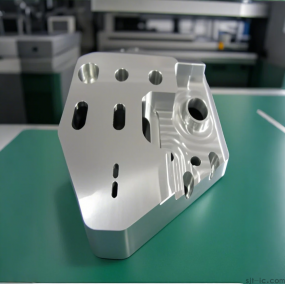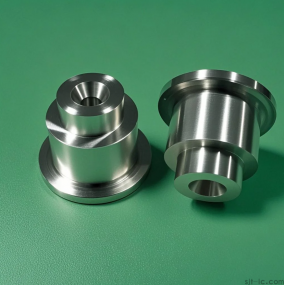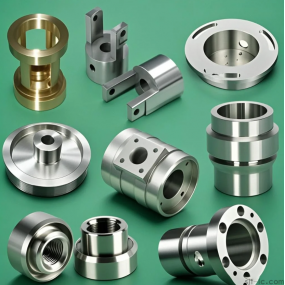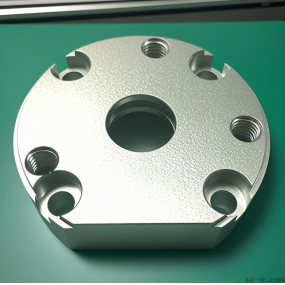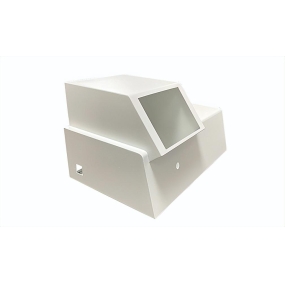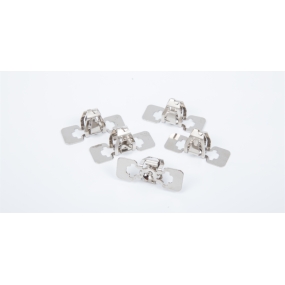Improving the efficiency and quality of titanium alloy CNC Machining requires comprehensive consideration from multiple aspects. Optimization can be carried out from the following aspects: 1. Optimizing machining parameters: The machining of titanium alloys requires the selection of appropriate cutting speeds, feed rates, and cutting depths. By adjusting these parameters, cutting force and frictional resistance can be reduced, and machining efficiency and quality can be improved. Meanwhile, reasonable selection of coolant and cutting fluid can also reduce tool wear and improve machining accuracy. 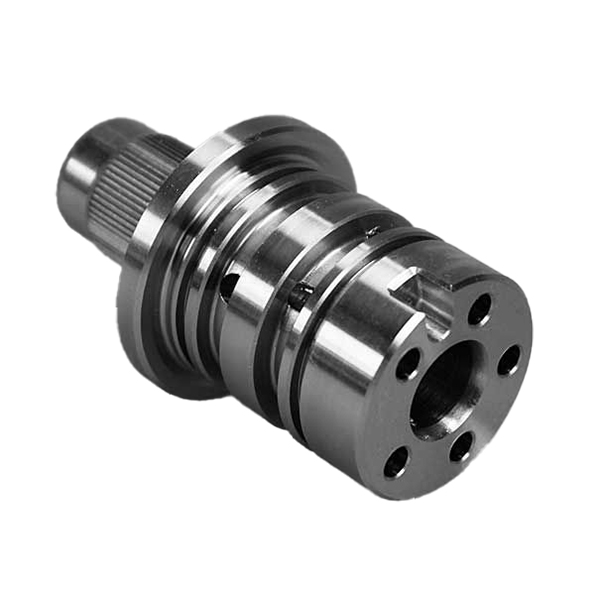 2. Selecting appropriate tool materials and coatings: Based on the processing characteristics of titanium alloys, selecting appropriate tool materials and coatings can improve tool life and processing efficiency. For example, hard alloy cutting tools, diamond cutting tools, etc. are all suitable tool materials for titanium alloy processing. At the same time, the use of coating technology can improve the hardness and wear resistance of the tool surface, further extending the service life of the tool. 3. Flexible use of main program and subroutine: In complex mold processing, a combination of main program and subroutine can be used to reduce the workload of repetitive programming and improve programming efficiency. By calling subprogram in main program, program structure can be simplified, error rate can be reduced, and processing efficiency can be improved. 4. Reduce the cumulative error of the CNC system: During the programming process, absolute programming should be used as much as possible, so that each program segment is based on the workpiece origin, thereby reducing the cumulative error of the CNC system and ensuring machining accuracy. At the same time, multiple positioning and staged processing can be used during the machining process to reduce machining errors and improve machining accuracy. 5. Strengthening heat treatment and surface treatment: After titanium alloy processing, heat treatment and surface treatment are required to improve the hardness and wear resistance of the workpiece. Through reasonable heat treatment and surface treatment processes, the mechanical properties and corrosion resistance of titanium alloy workpieces can be further enhanced, thereby improving their service life.
2. Selecting appropriate tool materials and coatings: Based on the processing characteristics of titanium alloys, selecting appropriate tool materials and coatings can improve tool life and processing efficiency. For example, hard alloy cutting tools, diamond cutting tools, etc. are all suitable tool materials for titanium alloy processing. At the same time, the use of coating technology can improve the hardness and wear resistance of the tool surface, further extending the service life of the tool. 3. Flexible use of main program and subroutine: In complex mold processing, a combination of main program and subroutine can be used to reduce the workload of repetitive programming and improve programming efficiency. By calling subprogram in main program, program structure can be simplified, error rate can be reduced, and processing efficiency can be improved. 4. Reduce the cumulative error of the CNC system: During the programming process, absolute programming should be used as much as possible, so that each program segment is based on the workpiece origin, thereby reducing the cumulative error of the CNC system and ensuring machining accuracy. At the same time, multiple positioning and staged processing can be used during the machining process to reduce machining errors and improve machining accuracy. 5. Strengthening heat treatment and surface treatment: After titanium alloy processing, heat treatment and surface treatment are required to improve the hardness and wear resistance of the workpiece. Through reasonable heat treatment and surface treatment processes, the mechanical properties and corrosion resistance of titanium alloy workpieces can be further enhanced, thereby improving their service life.
Hello! Welcome to EMAR's website!
 English
English » »
» »
 Spanish
Spanish Arabic
Arabic French
French Portuguese
Portuguese Belarusian
Belarusian Japanese
Japanese Russian
Russian Malay
Malay Icelandic
Icelandic Bulgarian
Bulgarian Azerbaijani
Azerbaijani Estonian
Estonian Irish
Irish Polish
Polish Persian
Persian Boolean
Boolean Danish
Danish German
German Filipino
Filipino Finnish
Finnish Korean
Korean Dutch
Dutch Galician
Galician Catalan
Catalan Czech
Czech Croatian
Croatian Latin
Latin Latvian
Latvian Romanian
Romanian Maltese
Maltese Macedonian
Macedonian Norwegian
Norwegian Swedish
Swedish Serbian
Serbian Slovak
Slovak Slovenian
Slovenian Swahili
Swahili Thai
Thai Turkish
Turkish Welsh
Welsh Urdu
Urdu Ukrainian
Ukrainian Greek
Greek Hungarian
Hungarian Italian
Italian Yiddish
Yiddish Indonesian
Indonesian Vietnamese
Vietnamese Haitian Creole
Haitian Creole Spanish Basque
Spanish Basque


